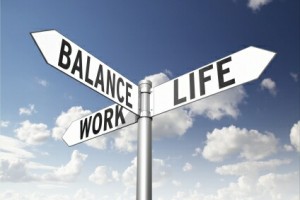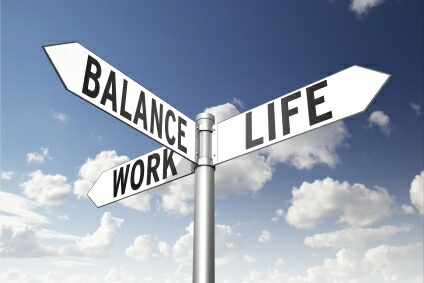 According to research, Australians work the longest hours in the Western world and around one quarter report that work frequently interferes with other life activities. Many of us are time poor and constantly rushing to juggle different commitments.
According to research, Australians work the longest hours in the Western world and around one quarter report that work frequently interferes with other life activities. Many of us are time poor and constantly rushing to juggle different commitments.
Work is generally good for mental and physical wellbeing. However, when productive stress becomes overwhelming stress, it can lead to health complications and burnout.
What are the benefits of work?
- Daily structure and activity
- Provides a sense of purpose and meaning
- Instills a sense of community
- Establishment and maintenance of relationships
- Financial independence
Having a strong work ethic is a good thing, however when work becomes all consuming then it’s time to reassess one’s priorities in life.
Taking time to live life will only inspire your work
What are the key features of burnout?
- Feelings of detachment from work and/or becoming cynical
- Reduced efficiency, lack of a sense of achievement and a general feeling of dissatisfaction
- Emotional and physical exhaustion
- Feelings of hopelessness and helplessness
Who is most affected?
According to The Australian Work and Life Index (AWALI) certain groups within society are more affected by the work/life interference:
- Parents, particularly mothers (and especially single mothers)
- Carers who are looking after sick, disabled or elderly family/relatives
- Professionals, managers and those in the mining industry
- Women generally have worse work/life outcomes because of the multi-tasking requirements of caring and domestic work
- People working from home where the requirements of work/housework have a negative impact on the work/life interface.
- Women caring for children as well as elderly or sick family members. This type of family dynamic is often referred to as the ‘sandwich generation’
Never get so busy making a living that you forget to make a life
Tips to achieving work/life balance:
- Prioritise – think about what’s important in your life and plan accordingly. Ask yourself what is the one or first thing in your life that you would like to focus on right now? Second? Third?
- Concentrate on doing one thing at a time and doing it well rather than trying to multi-task and doing little justice to any matter in your work/life
- Time management – use apps, to-do-lists, cut down on time wastage. Delegate where possible
- Set boundaries – set limits on work time, learn to say no, and factor in time for your favourite social/recreational activities every day if possible
- Create a balance – choose breadth and variety over perfectionism. Strive to be better rather than perfect
- Consider your finances. Meet your basic needs rather than living up to others/social expectations
- Relationships need time and nurturing. Priorities time with your family and loved ones
- Health – regular exercise has proven benefits in reducing stress, anxiety and depression. Factor this in at least 2-3 times per week, although small changes could be implemented on a daily basis.
- Down time – rest periods recharge our batteries. Schedule time each week for that import ‘me time’
- Look at your personal habits/lifestyle. Consider nutrition, exercise and sleep
- Take a holiday. It is important to take 2-3 weeks off per year. Turn off the mobile, the computer, and enjoy your holiday.
- Be prepared to ask for support. Tell friends, family, colleagues and your boss that you are seeking a better work/life balance. It is important they respect and understand your plan and direction in life
- Hire a personal coach if possible. A personal coach can help you assess, implement and focus on achieving a work/life balance.
- Seek out a mentor. Find someone that you admire for their successful career and positive personal life. Ask for their guidance on career development, time management and setting priorities. Discover what works for them in maintaining a terrific personal life?
- On a regular basis (say, monthly) evaluate and reflect on your direction in creating/maintaining a good work/life balance. “Life is a journey not a sprint.”
- Enjoy your work and life. Remember, “Do what you love, love what you do.”
Sometimes you need to step outside, get some air, and remind yourself of who you are and who you want to be.

